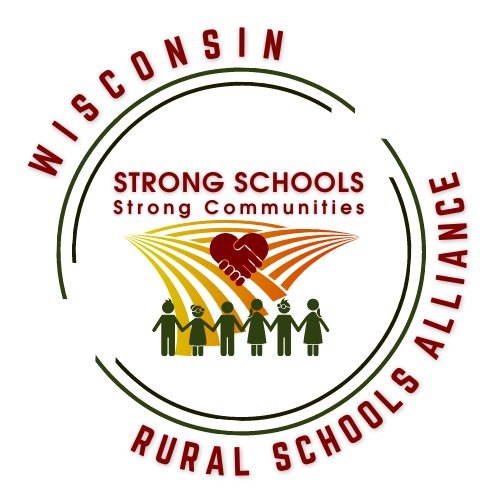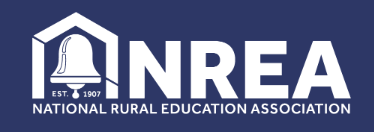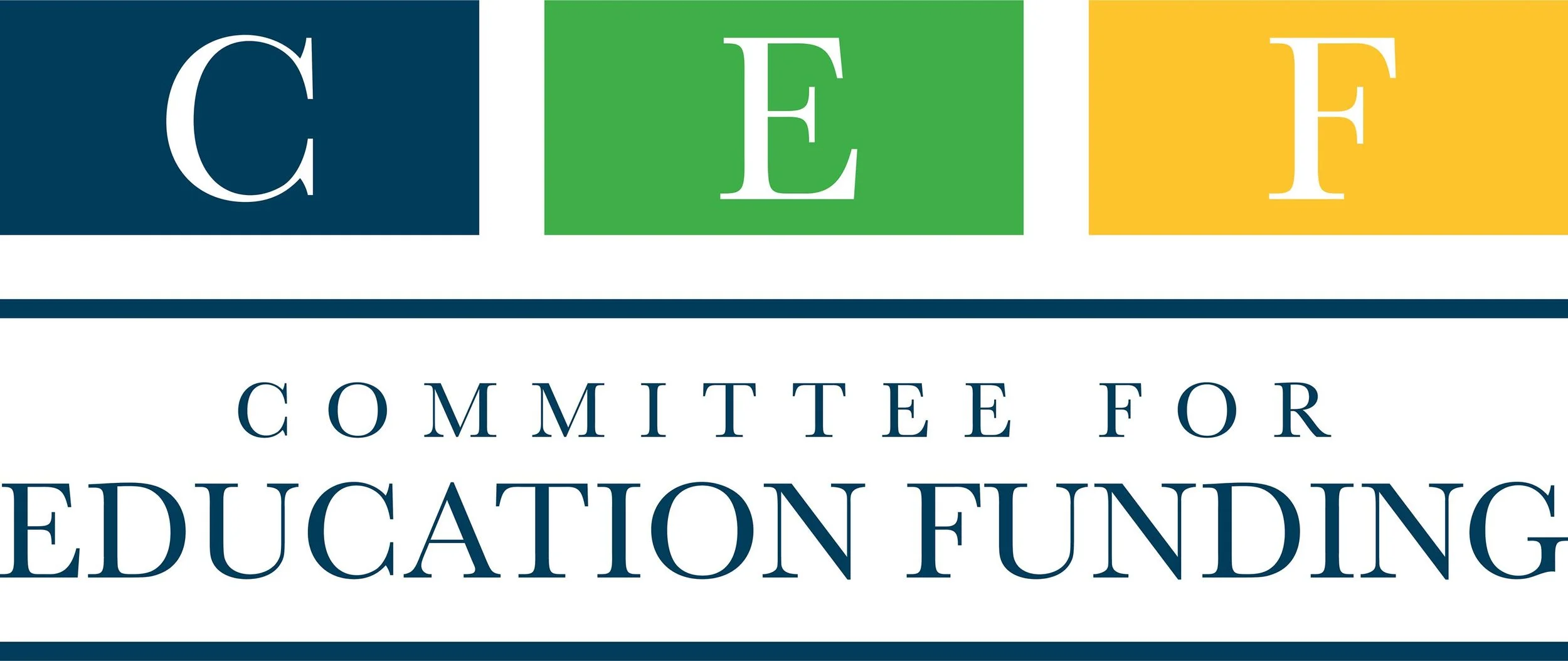WiRSA Update - September 10, 2025
Thank You! - WiRSA 2024 Conference Sponsors
Quick Overview of WiRSA Update: BACK TO THE TOP
- WiRSA New Membership
- WiRSA Conference 2025 (Less than 2 months away)
- Fabrication Laboratories Grant Information
- DWD - Fast Forward Grant Announced
- Learning Blade Information
- DPI News
- Republicans’ education proposals and the new Speaker Task Force Committees
- LFB - Legislative Fiscal Bureau MEMOS
- AASA Information
- NREA Information
- Office of School Safety Information
- Gov. Evers Press Releases
- Educational news articles
Highlighting NEW WiRSA Members BACK TO THE TOP
WiRSA membership has increased!
Special thanks! NEW membership strengthens WiRSA
UW-Madison College of Agricultural & Life Sciences - The college offers research-based, hands-on teaching of undergraduates; world-class graduate programs rich in research and project assistantships; and short courses, workshops and other programs.
Aviben - Simplified and Enhanced Benefit Plans - Delivering benefit options and education you deserve
Clear-Armor LLC - Enhancing the well-being of our communities by building a safe and secure environment through the use of our high-performance security glass laminate and critical life skills training.
FORTÉ - Transforming the Modern Workplace - Innovative communication and collaboration solutions from the leader in AV.
Learning Blade - The career-connected learning tool is designed to broaden students’ career awareness while supporting academic growth through 13 missions that contextualize learning. Fully funded (Free) through Wisconsin
Veregy - Your energy transition, expertly engineered. With Veregy’s award-winning expertise, we transform complex energy challenges into streamlined solutions that reduce your operating expenses while future-proofing your facilities.
WiRSA Conference Keynote 2025 - Mark Mambretti
Lasting success depends on everyone working together to provide a memorable experience. Discover how simple principles and leadership lessons that have been perfected at the world’s leading theme park can apply to any office and every role in a school system. We'll explore both a philosophical framework for leaders and also provide concrete actions which will foster authentic engagement.
You'll discover the method behind the "Magic" of improving your workplace's culture, climate, and results.
WiRSA Conference 2025!
Conference Overview with breakout sessions & special presentations
Conference interface - Can be viewed on a computer, phone, or pad (Under Construction)
Conference Hotel Accommodations - Closes 9-29-2025 (19 days left to book your room!)
Highlight!
Exciting Pre-Conference Opportunity
Pre-Conference Session Opportunity: A pre-conference session at UW-Stevens Point before the 2025 WIRSA conference. Hosted by the Harju Center for Opportunities in Education at UW-Stevens Point on Wednesday, October 29, 2025, from 12:00 to 5:00 PM in Stevens Point, WI.
Join lead researchers Bradley Carl (WCER) and Jenny Seelig (NORC) for a special pre-conference session focused on innovative strategies to support and sustain the rural educator workforce in Wisconsin.
This session will highlight findings from two major research projects:
Project One: Analyzed the rural educator workforce from a demand perspective with two goals: to identify rural districts' strategies to attract, recruit, and hire teachers, and to describe the evolving landscape of “grow your own” (GYO) initiatives used by Wisconsin districts and partners to address educator shortages.
Project Two: Builds upon the first by (a) summarizing key characteristics of the current teacher workforce in Wisconsin’s rural schools, including where they were trained; and (b) pivoting to the supply side to learn more about what the state’s approved EPPs are doing to help attract, train, and retain rural educators.
After reviewing both studies, participants will join an interactive planning workshop for strategies for strengthening programs and partnerships that support the rural educator workforce. K-12 and postsecondary professionals are invited to develop a plan for moving this research into action!
This session is free to attend, but registration is required in advance. Please use this Google Form to register.
The workshop is intended for school district administrators, educator preparation program directors, CESA teacher training providers, and college program staff. Don’t miss this opportunity to collaborate and contribute to the future of rural education in Wisconsin.
INFORMATION
Fabrication Laboratories Grant
The application process for WEDC’s Fabrication Laboratories (Fab Labs) Grant Program will be reopening soon for a new round of grants. The grant program goals and selection criteria are now available for fiscal year 2026 so your district can determine whether you wish to apply and begin to plan your application. We will begin accepting applications Oct. 13, 2025. Applications will be due Jan. 15, 2026. An informational webinar will take place Oct. 2, 2025. Please reach out to the below contact should you be interested in attending the webinar. For FY26, applicants may only be awarded one grant per fiscal year. There is a lifetime limit of three grants per organization, with exceptions for Milwaukee Public Schools, a K-8 expansion of an existing fab lab, or the expansion of an existing fab lab to include artificial intelligence or related skills training. Refer to the program guidelines and frequently asked questions document on the Fab Labs Grant Program webpage. Districts that have received funding in one or two previous application cycles are still eligible to apply, along with new applicants that have not yet received any funding through the
As in previous years, eligible applicants include Wisconsin public school districts as well as cooperative educational service agencies (CESAs). In addition, a lead public school district may apply on behalf of a consortium of two or more public school districts. “Public school district” refers to the territorial unit for school administration as defined by Wis. Stat. §115.01(3) or a Tribal school as
defined by Wis. Stat. §115.001(15m).
As part of the FY26 budget, $250,000 has been budgeted for the program. A public school district applicant can seek up to $25,000 in total grant funds. A consortium of two or more districts can seek up to $50,000. The minimum grant amount available is $10,000. For this year’s funding cycle, applicants are being asked to match 50% of the amount of grant funds requested. For example, if your district is requesting a grant of $25,000, the district must provide a match of at least $12,500. As in previous years, awardees must use funds to purchase equipment used for instructional and educational purposes by elementary, middle, junior high, or high school students in one or more fab labs.
Visit WEDC’s Fab Labs Grant Program webpage to learn more about the program, including definitions and eligibility criteria, and find information on the application process.
Thank you for all the work you do on behalf of your students and the communities you serve.
Sincerely,
Ann Hyra
Business and Community Development Grants Manager
WEDC
ann.hyra@wedc.org
Phone: 608.210.6847
Informational
Fast Forward Grant Announcement: New Industry Sector Training Grants Available
The Wisconsin Department of Workforce Development's Office of Skills Development has released a new Grants Program Announcement. Under the Wisconsin Fast Forward (WFF) program, the grants will fund innovative and collaborative customized worker training programs in all industry sectors.
Key features of the program:
Grants are available to companies of any size in all industry sectors.
Grant award amounts range from $5,000 to $400,000. A grantee serving as an applicant for a consortium of employers may apply for more than $400,000.
Cash or in-kind match equal to 50% of the grant award amount is required.
Grantees must complete training of at least 85% of the contracted number of trainees.
At least 75% of incumbent trainees must receive increased wages.
Applications are due by 3 p.m. CST on Tuesday, Oct. 16, 2025. For additional information or to download an application, consult the Grant Program Announcement and related grant program materials.
Thank you for your continued interest in the Wisconsin Fast Forward grant program.
John Roos
Director, Office of Skills Development
Department of Workforce Development
(608) 733-3918
Wisconsin educators have free access to Learning Blade – an engaging, supplemental tool designed to boost STEM learning and career exploration in your classrooms, supporting Wisconsin’s Academic and Career Planning initiatives.
Why Learning Blade?
500+ interactive online lessons introducing students to 100+ careers in STEM, Advanced Manufacturing, Computer Science, and more
Offline hands-on projects with design thinking, 3D printing, and parent engagement
Aligned to Wisconsin Career Readiness and academic standards (grades 5–9) for seamless integration into math, science, language arts, social studies, computer science, and CTE curricula
Explore critical fields like Coding and Artificial Intelligence
Includes free training and ongoing support
Ready to get started?
Sign up now at: learningblade.com/WI
Explore all modules in the Missions Catalog
Questions? Reach out to Colleen at colleen@learningblade.com
Schedule a free demo through Calendly
This opportunity is fully funded by the US Navy through a collaboration with the Maritime Industrial Base and BlueForge Alliance.
INFORMATION
DPI - News!
Press Releases: - Current News Releases from DPI
The State Superintendent of Public Instruction hereby adopts an order to amend ss. PI 34.022 (intro.), PI 34.040 (2) (g) 1. a. and b., 3., and 4.; and to create ss. PI 34.040 (2) (g) 1. c. and (g) 5.to 8., relating to the out-of-state pathway for educator licensure. FULL TEXT
Summary of Changes in 2025 Act 15 (2025-27 Biennial Budget)
Informational - FROM
ASSEMBLY REPUBLICANS ANNOUNCE FALL AGENDA - More to come in the future
Speaker Robin Vos and a group of Assembly Republicans held a media availability today to announce their new education proposals and the new Speaker Task Force Committees. Speaker Vos said he plans to prepare the education proposals for action this fall with the Task Force recommendations being taken up in January and February. Vos said the Assembly plans to adjourn in February. When asked if the Senate was onboard with the proposals, Vos said they have had preliminary discussions. The education proposals are expected to be made available in the next couple weeks.
Education Proposals:
A proposal similar to Act 20 that focuses on early detention and addressing math and reading deficiencies. (Rep. Kitchens)
A proposal to address drones being flown over schools. (Rep. Kitchens)
A proposal to create a clear framework for Wisconsin’s dual enrollment system. (Rep. Murphy)
A “Teacher’s Bill of Rights” to address student discipline and violence against teachers. (Rep. Penterman)
Legislation to notify the federal government that Wisconsin will participate in the National School Choice tax credit program. ( Rodriguez)
A package of bills addressing school district consolidation and shared services. Nedweski said there could be financial incentives for districts that voluntarily work towards consolidation and/or shared services. She said the package could include items to help address the reorganization process, helping with costs to determine feasibility of consolidation, and addressing the local tax impact when two or more districts join that have different mill rates. (Rep. Nedweski)
Legislative Fiscal Bureau
Legislative Fiscal Bureau - Preliminary 2024-25 General Fund Tax Collections (Higher Than Expected)
Legislative Fiscal Bureau - Revenue Limits Per Pupil Adjustment Indexed to Inflation 2008 - 2026 (July 24)
Legislative Fiscal Bureau - Estimated Effects of K-12 Funding Provisions for School Districts in the 2025-27 Biennium (July 30)
Legislative Fiscal Bureau - Property Tax Estimates Under 2025 Act 15 (July 31)
Legislative Fiscal Bureau - General Aid Deduction for Vouchers
Legislative Fiscal Bureau - Legislative Fiscal Bureau K-12 Funding Increases in the 2025-27 Biennium (August 1)
Informational
AASA Files Comments in Response to USED Proposed Priorities and Definitions on Advancing Artificial Intelligence in Education
How the One Big Beautiful Bill Impacts Higher Education
Federal Agencies Release Joint Workforce Plan
GUEST POST: New UndauntedK12 Resources for Infrastructure Investments
SchoolSafety.gov Launches 2025 Back-to-School Campaign
SchoolSafety.gov has launched the 2025 Back-to-School Campaign.
WEBINAR: How Medicaid May Affect Education
Campaign: Keep Fighting for Education Funding
Judge rules against Trump administration's plan to end DEI efforts
What Happened When States Dropped Teacher Licensing Requirements
Dr. Melissa Sadorf, NREA Executive Director - Introduces Herself
__________________________________________________________
Rural Schools, Real Solutions
AASA Webinar on September 29
Featuring:
NREA Executive Director Melissa Sadorf
NREA School Administrator Representative Jeff Byrd
How can rural schools attract and retain top educators—without big budget boosts?
___________________________________________________________________________
The wait is over! The 2025 National Forum to Advance Rural Education—the nation’s premier rural education conference — is bringing you 130+ dynamic learning sessions led by 250+ visionary educators, researchers, policymakers, and community leaders from across the country.
From transforming teaching with AI, to growing rural teacher pipelines, to boosting student mental health, to building college and career readiness—this year’s conference is designed to give you practical strategies, innovative ideas, and inspiring success stories you can take home and put to work right away.
The National Forum to Advance Rural Education is more than a conference— it’s a dynamic, high-energy experience where passion fuels innovation and ideas spark real change. Get ready for three days packed with:
Inspiring keynotes from national leaders and change-makers
Engaging sessions packed with real-world solutions and new ideas
Unmatched networking with peers and innovators
Actionable takeaways you can put to work the moment you return home
Whether you’re an educator, researcher, policymaker, or advocate, this is where rural education’s future takes shape—and you’ll be part of it.
Your seat is waiting—register today!
OFFICE OF SCHOOL SAFETY
OFFICE OF SCHOOL SAFETY SAFETY RESOURCES TRAINING OPPORTUNITIES VIRTUAL LEARNING
In Time for Back-to-School: New Social Media Toolkit
Captions and Downloadable Graphics
Designed to support school safety and encourage conversations about reporting concerns, this new series of downloadable images is available in multiple sizes for popular platforms like X, Instagram, and Facebook.
Choose the graphic(s) that best fit your message and share them on your social media accounts. Your posts can help raise awareness and empower students, staff, and community members to speak up when safety concerns arise.
Find the new graphics and sample captions on the SUSO Social Media Toolkit webpage.
Call for WSSCA / WJOA Annual Conference.
Breakout Session / Workshop Proposals.
Proposals will be accepted through September 12, 2025.
Conference Proposal Selection Criteria:
Please only submit a proposal if you are available to present any day of the conference - March 5 or 6, 2026.
Each proposal is evaluated by the WSSCA Conference Planning Committee. Many factors are considered in the selection of presentations, including:
The topic is of high interest and relevant to today’s school safety leaders.
Objectives are clear and can be met in the designated time allotment. Most workshops are 55 minutes in length. A limited number of longer (75 to 110 minute) workshop sessions may be available (these longer sessions should be interactive/hands on).
The presentation will be engaging and interactive (large speaker panels are discouraged).
The concept or solution presented:
Is innovative or affirms a best practice.
Is providing positive, tangible results in enhancing/improving school safety and/or security.
Can be replicated in other schools or school districts.
Audience members have a clear “take away” from the presentation.
The Conference Planning Committee is encouraging a collaboration/partnership between our WSSCA Corporate members and practitioners in developing workshops that highlight how a safety or security critical incident/situation was addressed or an effective solution that was implemented in a school or school district. The presentation is NOT to be used as a “hard sales pitch” by businesses.
The proposal is well written and complete.
Gov. Evers Press Releases / News / Articles / Webinars
Gov. Evers Press Releases
DA - District Administrator
WISCONSIN EXAMINER
WISCONSIN POLICY FORUM
Learning Policy Institute
ELC Education Law Center
FETC - Future of Education Technology Conference
OTHER
























